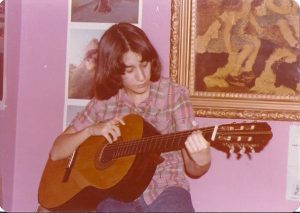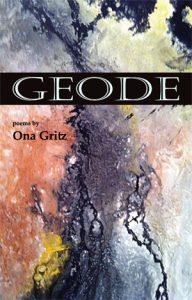Writing As an Act of Resistance
 The first poet I ever met in person was the singer/songwriter, Phil Ochs. I was in eighth grade and had been taking guitar lessons on Tuesdays after school with his sister Sonny for about a year when I arrived early one winter afternoon, and the famed troubadour answered her door.
The first poet I ever met in person was the singer/songwriter, Phil Ochs. I was in eighth grade and had been taking guitar lessons on Tuesdays after school with his sister Sonny for about a year when I arrived early one winter afternoon, and the famed troubadour answered her door.
“Sonny’s not home yet,” he said. “Do you want a hot chocolate or something while you’re waiting?”
This was 1976, the year my friends and I scanned the radio dial for Elton John songs and mooned over Peter Frampton. But unbeknownst to them, and to the man awaiting my shy No thank you, it was Phil Ochs’ decade old albums I kept on the turntable in my room where I sat close to the speakers so I could take in every word of his clever, biting, sometimes funny, always earnest protest songs.
Through Phil’s lyrics, I grew viscerally aware of the violence and racism in our country’s history, came to understand the role of apathy in Kitty Genovese’s murder and countless other atrocities, saw all that was wrong with our participation in the deadly, drawn-out war that had finally ended just the year before.
Over my next few lessons, Sonny had Phil autograph a page of my guitar notebook and gushed for me over how much his songs meant to me. When I quietly told her we were studying The Highwayman in my English class, a poem he’d set to a haunting melody, she called him in to sing a verse. By then it was clear to me and, I’m sure, to Sonny, that I’d never be much of a musician. But, along with lessons in social justice, my close study of her brother’s songs led me to discover the power of language and story.
I saw that words, when carefully chosen and thoughtfully placed, can evoke empathy, stoke outrage, make items in a newspaper and moments in history feel immediate and real. I imagined talking to Phil about how all this might inform the poems I’d begun scribbling in the back pages of my guitar notebook. But I remained too shy and starstruck to say much of anything in his presence, and then he was gone.
That was over four decades ago. The world has changed dramatically, and it also hasn’t. We are still endangered by wars, bigotry, misogyny, violence, and, to a newly terrifying degree, climate change. The cruelty toward immigrants at our borders, practiced furtively then, has become national policy. In that bi-centennial year when I was an out-of-step teenager learning about poetry and politics from lyric sheets and liner notes, our country was reeling from the aftermath of impeachment proceedings against a president for abuse of power and obstruction.
We also faced what many thought would be a pandemic as widespread and deadly as the one we’re in the midst of right now. While President Ford’s decision to initiate an immediate, nationwide swine flu vaccination program proved premature and ultimately dangerous, his vigor and concern remains in sharp contrast to the current president’s callousness as he attempts to rush us back into the workforce and in harms way, despite the medical experts’ edict that sheltering in place is the safest, most prudent, and socially responsible action we can take.
Through all of this, we resist. We protest, gathering when we can and it’s safe to do so. We call our representatives, write postcards, sign petitions, and, of course, vote. We work to harness our outrage and indignation, and use our love for what this world can and should be to defend against its worst version of itself. We try not to feel helpless. We feel helpless nonetheless.
From the moment I first pulled on my pink hat and left for Washington on an unseasonably warm January day in 2016, the old protest songs of Phil Ochs have thrummed through me, a part of my own consciousness. They’re teaching all the children that they don’t have to care/All the rudiments of hatred are present everywhere/…There’s nobody learning such a foreign word as “fair…” Sometimes I’ll feel discouraged by just how relevant his fifty-year-old verses are yet again, but on good days, I remember how those words shaped me. I remember that words can do that, and the weight of that helpless begins to lift.
“It is difficult to get the news from poems,” William Carlos Williams famously wrote, “yet men die miserably every day for lack of what is found there.”
News comes to us in swaths. Poetry considers moments. News comes to us raw. Poetry distills and, in both senses of the word, reflects.
At a time when the airwaves are filled with divisiveness, misinformation, and even hate speech, and the supposed leader of the free world governs through a Twitter feed of gibberish and lies, I can think of no better way to spend my working hours than at the writing desk, striving for eloquence, delving for truth.
—

Ona Gritz’s books include the poetry collection, Geode, a finalist for the Main Street Rag Poetry Book Award, and On the Whole: a Story of Mothering and Disability, a memoir. Her poems and essays have appeared in The New York Times, The Guardian, River Teeth, The Utne Reader, Ploughshares, The Bellevue Literary Review, and elsewhere. Ona’s nonfiction is listed among Notables in Best American Essays and Best Life Stories in Salon.
Find out more about her on her website https://onagritz.wordpress.com
Category: Contemporary Women Writers, How To and Tips
























